
Gold is a classic jewellery metal that cannot go out of style, despite the fact that silver may have just overtaken it in terms of appeal.
These suggestions will help make sure that your favourite jewellery pieces endure a lifetime, regardless of whether you only have a few gold items or if gold makes up the majority of your jewellery box.
Types of gold alloys
- Yellow Gold: When most people think of traditional gold jewellery, they imagine yellow gold. Pure gold is frequently combined with silver, copper, and zinc. Of all the several forms of gold, it is the most hypoallergenic and requires the least amount of upkeep.
- White gold is really an alloy of gold, nickel, or palladium with zinc, copper, and other metals. It is a well-liked variety of gold since it is inexpensive and in keeping with the white-metal craze. White gold is more resilient to dents and scratches than conventional yellow gold.
- Rose gold: In the jewellery industry, rose gold is currently fashionable. Due to the alloying of gold and copper, the colour is "not really gold but not entirely pink." This produces a range of blush pink hues that are currently popular amongst women of all ages. It is more resistant to wear and tear than yellow and white gold due to the copper element.
- Wearing Suggestions for Everyday
If treated right, gold jewellery ought to last for years. Here are a few things to keep in mind on a regular basis while wearing gold jewelry:
- Gold is a soft metal; even though it has a unique sheen and lustre, gold is also a soft metal. As a result, it is vulnerable to dents, scratches, and dings. Wearing gold rings, bracelets, watches, and other jewellery requires care, so take them off before engaging in any high-contact activities.
- Chlorine is gold's deadliest enemy; over time, exposure to chlorine will degrade the structure of your gold jewellery and finally cause it to break. Before entering a pool or spa, be careful to take off all of your jewellery.
- The finish on your jewellery will be harmed by household cleaners that contain acids or abrasives, so cover it or remove it when cleaning. Use rubber gloves when cleaning (we advise doing so anyhow to protect your skin) or take all of your jewellery off.
- When getting dressed, put your jewellery on last because gold can be damaged by lotions, hairspray, perfume, and makeup. To reduce vulnerability, make sure to put out these items on before your jewellery.
- Remove jewellery before bathing because doing so can result in a buildup of soap that can leave a film on your jewellery.
- Common Cleaning Advice
- Your gold jewellery is exposed to skin oils, perspiration, dust, cosmetics, and more when worn frequently. You should often clean your jewellery with a mixture of 10 parts warm water and 2 parts dish soap to retain its shine. Additional advice:
- The secret is soaking. According to Real Simple, you should immerse your gold jewellery pieces for three hours before using a very delicate brush to gently scrub them. Rinse with fresh water, then pat yourself dry with a towel.
- Bonus advice: After doing this, polish your jewellery with a cloth. Use a tissue or paper towel sparingly, since they can damage your jewelry. Other cleaners that jewellers recommend include rubbing alcohol and bleach, but avoid the latter.
Storage Methods for Gold Jewelry
The next step in caring for your gold jewellery is storing it properly after you've worn and cleaned it for the day.
- Use a jewellery box; the best choice is one that is lined with clean, dry fabric.
- Wrap every item in a gentle cloth: Save those complimentary phone screen covers and use the extras to individually wrap each item of jewellery if you don't have a jewellery box.
- To avoid tangling or scratching one another, keep jewellery in separate containers.
What to think about before buying gold
- If you don't already own a lot of gold jewelry, you might want to learn more about it before purchasing any. What you should know is:
- Although many are attracted to the purity of 24-karat gold (99.99% pure), few are aware that it is actually too soft to be used in most jewelry. 24-karat gold isn't all that it's cracked up to be.
- Alloys are formed when two or more metals are blended. To make the basic metal stronger, this is done. Here are a few different kinds of gold alloys that you're probably already familiar with. Gold that has been alloyed with additional metals to increase strength is 10-, 14-, and 18-karat gold.
- Check for a quality mark: Regardless of the quality you select, your gold should bear a quality mark with the carat value on it.
With these pointers, we hope you can better maintain your gold jewellery over time. You should be able to pass down your gold jewellery to future generations if you treat it well. Visit Sneharataria.com to locate a beautiful selection of items for you and future generations to enjoy.
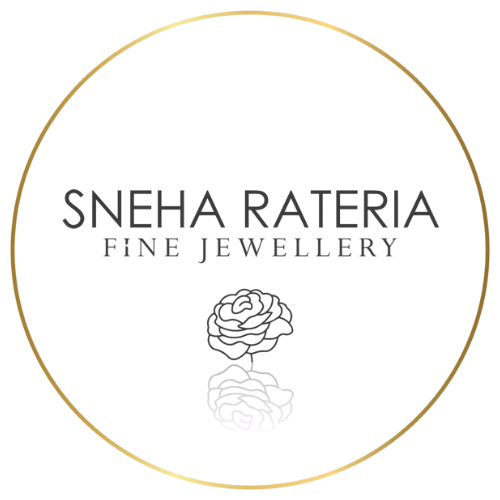

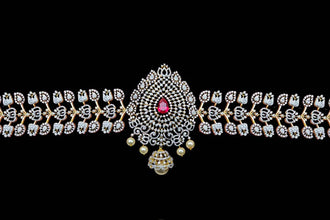
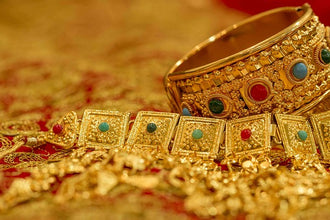
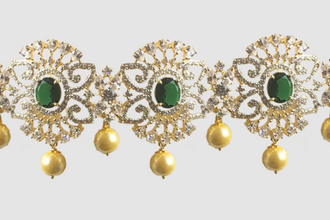
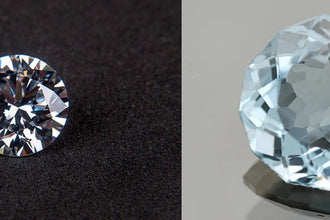
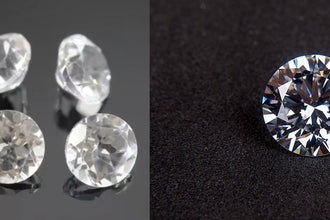
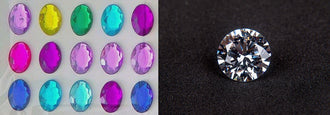
reme akter /
“Sneha Rateria’s designs are a stunning blend of tradition and modern elegance. The website beautifully highlights the intricate craftsmanship and thoughtful detailing in each piece. Truly timeless creations that celebrate individuality—absolutely inspiring!”
https://custom-made-rings.com/
sandiegojewelrystore /
“As a brand committed to celebrating fine craftsmanship, we appreciate Sneha Rateria’s insights on caring for gold jewelry. Proper maintenance not only preserves each piece’s beauty but also its sentimental value. Great tips for any jewelry lover looking to keep their collection shining for years!”
newyorkcityjewelrystore /
This article provides valuable insights into caring for gold jewelry! The tips on regular cleaning and proper storage are particularly helpful for maintaining its shine and longevity. I appreciate the emphasis on avoiding harsh chemicals, as they can really damage the metal. Thank you for sharing such practical advice!
san antonio jewelry store /
Thank you for sharing these valuable tips on caring for gold jewelry! It’s so important to maintain its shine and luster, especially with regular cleaning and proper storage. I particularly appreciate the advice on avoiding harsh chemicals and the reminder to remove jewelry before engaging in activities that could cause damage. I’ll definitely be implementing these practices to keep my pieces looking their best!
Visit Us:-https://www.diamonddistrictblock.com/san-antonio
Goldrateqatar /
This article from Sneha Rateria Store provides practical tips for caring for gold jewelry to ensure it lasts a lifetime. It covers the different types of gold alloys, daily wearing suggestions, cleaning advice, and proper storage methods. It also includes tips on what to consider before buying gold jewelry, such as understanding the strength of different gold karats and checking for quality marks. Overall, it’s a helpful guide for anyone looking to maintain the beauty and longevity of their gold pieces.
Source: https://www.goldrate.qa